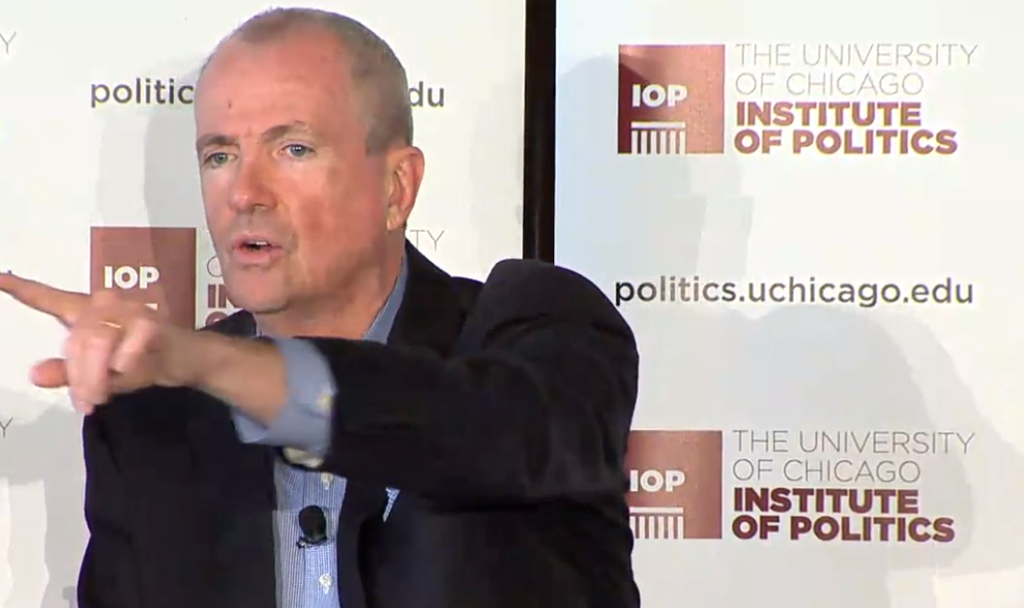Governor Murphy Announces Adoption of Rules Returning New Jersey to Regional Greenhouse Gas Initiative

Governor Murphy Announces Adoption of Rules Returning New Jersey to Regional Greenhouse Gas Initiative
TRENTON – Fulfilling his promise to restore New Jersey’s national leadership in the fight against climate change and sea-level rise, Governor Phil Murphy today announced that the New Jersey Department of Environmental Protection (DEP) has formally adopted two rules returning New Jersey to the Regional Greenhouse Gas Initiative (RGGI). New Jersey was a charter member of RGGI before Governor Christie withdrew the state from the compact in 2012.
“Climate change and sea-level rise affect us all, and as a coastal state, New Jersey is especially vulnerable to the impacts of global warming,” said Governor Murphy. “The reckless decision to pull out of the Regional Greenhouse Gas Initiative in 2012 cost the state millions of dollars in revenue that could have been used to put toward initiatives to reduce greenhouse gas emissions and improve the health of our residents. New Jersey has reemerged as a national leader in fighting climate change and reentering the Regional Greenhouse Gas Initiative will propel us on a path to 100 percent clean energy by 2050.”
The first rule, the Carbon Dioxide Budget Trading rule, establishes the mechanisms for rejoining RGGI and sets the initial carbon-dioxide cap for the state’s electricity generation sector at 18 million tons in 2020. New Jersey’s carbon dioxide budget will decline by 30 percent through 2030, with other adjustments that are standard to all member states. The model used to develop the New Jersey carbon budget only considers emissions from currently operating electric generating facilities. Through a combination of RGGI’s required carbon-dioxide reductions and Governor Murphy’s aggressive renewable energy goals, the Department of Environmental Protection projects that the state’s greenhouse gas emissions will be 11.3 million tons by 2030.
The second rule, the Global Warming Solutions Fund rule, establishes the framework for how the DEP, the New Jersey Economic Development Authority, and the New Jersey Board of Public Utilities will implement a system to spend proceeds from RGGI carbon-dioxide allowance auctions, with an emphasis on projects that will benefit environmental justice in certain communities.
The DEP adopted the rules today with their publication in the New Jersey Register. In the coming months, RGGI member states will vote on New Jersey’s adopted rules and formal reentry, which will allow the state to participate in the first-quarter RGGI auction in March 2020.
“Not only is our coastline at risk from global warming, so are our densely populated urban areas and communities that are susceptible to river and stream flooding,” said New Jersey Department of Environmental Protection Commissioner Catherine R. McCabe. “While New Jersey has one of the cleanest electric generation portfolios in the country, resuming participation in RGGI provides the impetus for even further carbon dioxide reduction and is an important component of our comprehensive plan to address climate change.”
“Mitigating the impacts of climate change is one of the most significant challenges we face,” New Jersey Board of Public Utilities President Joseph L. Fiordaliso said. “Rejoining RGGI is a crucial step toward reducing greenhouse gas emissions and achieving our goal of 100 percent clean energy by 2050. I am proud to serve in an administration that places such a high priority on creating a safer, healthier, more economically sound future for our children and grandchildren.”
“Under Governor Murphy’s leadership, New Jersey is positioning itself to be at the forefront of the clean energy economy and participating again in RGGI will be a major milestone toward that goal,” New Jersey Economic Development Authority Chief Executive Officer Tim Sullivan said. “The NJEDA is thrilled to be partnering with Commissioner McCabe and her team to maximize the opportunities presented to New Jersey to combat climate change and create sustainable jobs at the same time.”
The Regional Greenhouse Gas Initiative is made up of Mid-Atlantic and New England states working to reduce carbon-dioxide gas emissions from the energy sector through a cap-and-trade auction process that encourages more market efficiencies, invests in renewable energy, and improves power-plant technology. RGGI’s members are Connecticut, Delaware, Maine, Maryland, Massachusetts, New Hampshire, New York, Rhode Island, and Vermont.
Returning New Jersey to RGGI has been a priority for Governor Murphy since the outset of his administration. In his first month in office, the Governor issued Executive Order No. 7 directing the state to rejoin RGGI and develop a program that implements solutions that benefit communities that are disproportionately impacted by climate change.
“We congratulate and salute New Jersey on this historic step. The effects of climate change and pollution operate across state lines, so it is important for states to work together as a region to take on these issues and move towards a cleaner power sector,” said Ben Grumbles, Secretary of the Maryland Department of the Environment and Chair of the RGGI, Inc. Board of Directors. “New Jersey has communicated frequently with the RGGI states in the design of the final rule. We thank and applaud them for their efforts and very much look forward to working together as RGGI participating states.”
(Visited 7 times, 1 visits today)








